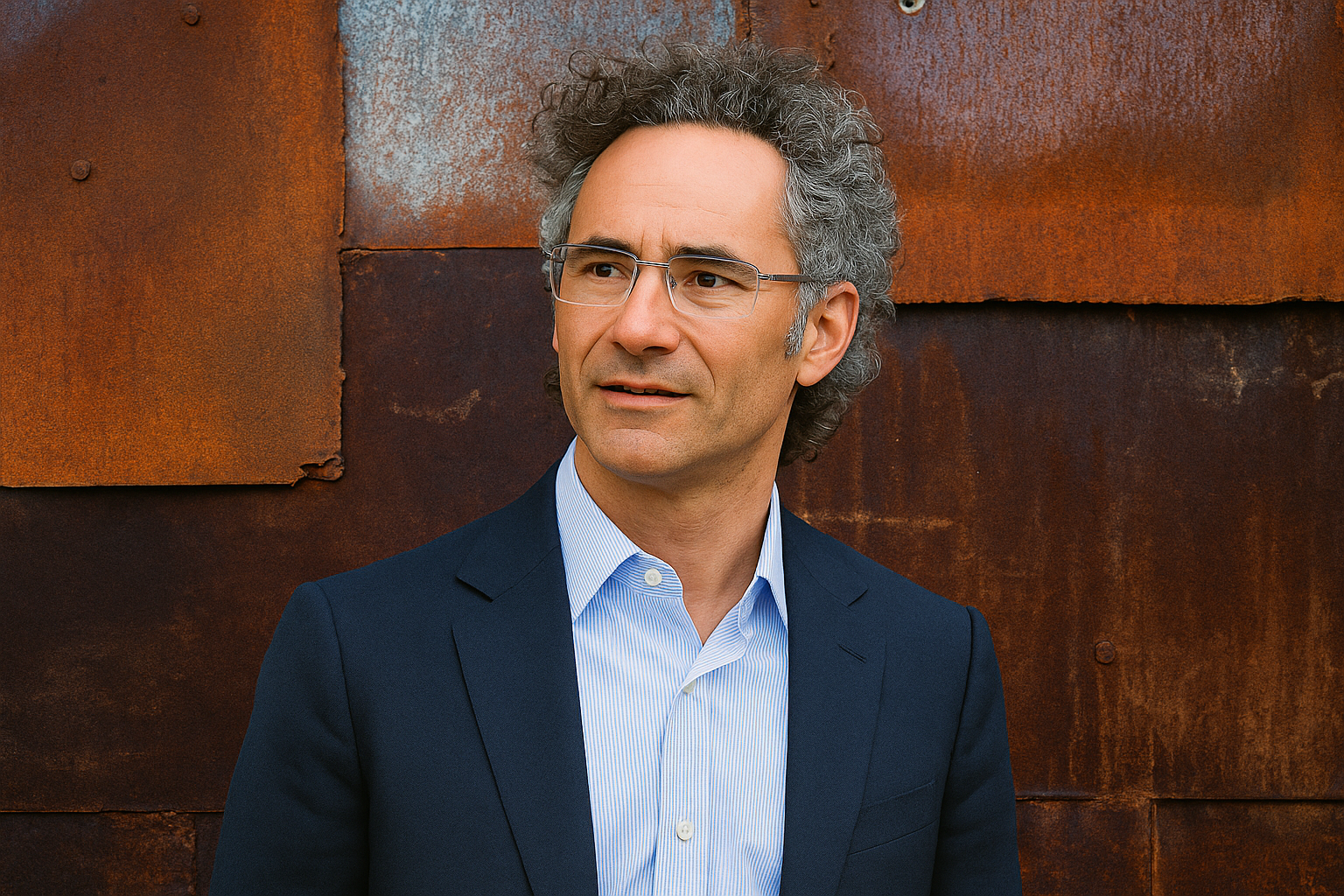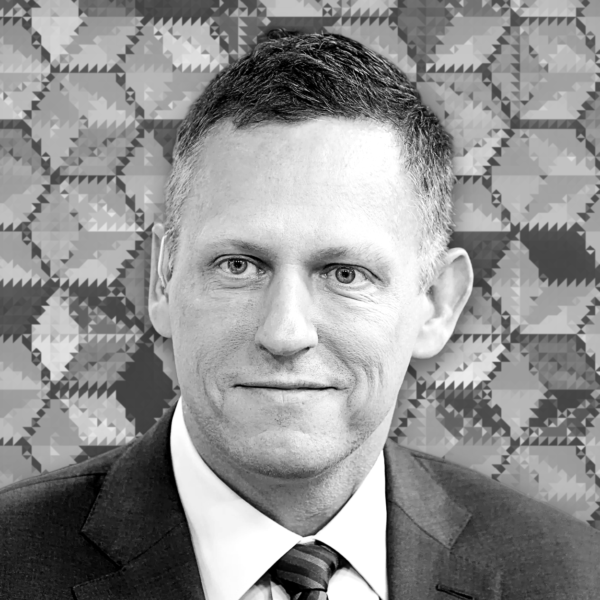
Power, privacy, and the Palantir playbook: What family offices can learn from Alex Karp
In a world where AI is weaponised, data is sovereign, and institutions are fragmenting, few private actors have amassed influence like Alex Karp. The Palantir CEO isn’t just building software; he’s helping reshape global intelligence infrastructure. For family offices seeking relevance in a volatile age, there’s value in studying his strategy.

Karp rarely plays by the book. From the start, Palantir positioned itself not as a fast-scaling SaaS firm but as a mission-driven intelligence partner to governments. The company resisted commercial shortcuts, built software for hard problems, and embraced values-based client selection, all under the philosophical guidance of a CEO more fluent in Frankfurt School thought than Silicon Valley jargon. This case unpacks what family offices can learn from Karp’s contrarian playbook: a model of long-duration capital, ethical constraint, and public-private positioning.
About the Company
Palantir Technologies
- Location Denver, Colorado, United States (HQ relocated from Palo Alto in 2020)
- Type Big data analytics and AI software company specialising in government and enterprise intelligence infrastructure
- Founded 2003
Intelligence as Infrastructure
Palantir began in 2003 with a mandate to address national security blind spots post-9/11. Rather than build mass-market tools, the company embedded itself in the workflows of intelligence agencies, offering software for data fusion, surveillance, and threat detection. Gotham, its core product, became the connective tissue for agencies that historically operated in silos.
As the company expanded, its infrastructure-like presence followed. Today, Palantir powers pandemic responses, battlefield logistics, and critical supply chains. Its enterprise platform, Foundry, is increasingly used by industrial clients to model scenarios, optimize systems, and simulate risk at scale.
In his Q1 2025 Letter, Karp reflects on this contrarian path, writing: “We have taken repeated and enormous risks to build this company, risks that in hindsight seem to many almost prudent and banal.”
This posture, blending foresight with deep conviction, is what has allowed Palantir to embed itself across military, healthcare, and energy systems, as more than just a vendor, but as infrastructure. Palantir (PLTR) listed on the NYSE in 2020 through a direct listing, reflecting its preference for independence and long-term capital alignment.
Lesson: Family offices should think about systems, not sectors. Investments in foundational infrastructure, whether digital, physical, or informational, build greater resilience than exposure to trend cycles. Palantir’s model isn’t just about defence; it’s about dependency.
The Karp Doctrine: Philosophical Capitalism
Karp is no conventional capitalist. With a PhD in philosophy and an affinity for complexity, he has long pushed back against short-term metrics and mass-market validation. From day one, he rejected VC groupthink, opting instead for sovereign clients, slower adoption, and ideological alignment.
“There are things we will not do. We’ve said no to business that doesn’t align with our values, and we will continue to.”
— Alex Karp, CEO, Palantir
Palantir has famously refused business from authoritarian regimes and corporations it deems misaligned with its core beliefs. Karp has described the company’s founding mission as one committed to supporting Western liberal democracies, not just as a strategic choice, but as a moral position.
That stance has cost Palantir market share, but it has built deep trust in the highest strategic circles. Karp’s thinking is simple but uncommon: constraints clarify mission. And longevity follows mission clarity.
Lesson: Family offices are uniquely positioned to lead with values, not just because they can, but because they must. Whether backing founders, funds, or initiatives, alignment matters more than velocity.
Sovereign Capital Without the State
Palantir now occupies a strange space: a private company fulfilling state-like roles. Its software helps NATO coordinate defense operations. It underpinned COVID-19 response across health ministries. It consults directly with world leaders, including heads of state, on security and technology strategy.
Karp does not frame this as overreach. He sees it as necessary. In an era where governments are overburdened and bureaucratic, private actors with capability can, and should, fill the gaps. This philosophy is what some have dubbed “sovereign-by-software.”
Lesson: For family offices, the takeaway isn’t to mimic Palantir’s contracts. It’s to recognise that capital is not neutral. Today’s investors shape markets, policy, and infrastructure. And in a geopolitically charged world, that influence is scrutinised, or weaponised. Navigate accordingly.
From Caedmon to Quiet Wealth
Before Palantir, Karp ran Caedmon Group, a discreet investment firm based in London. Today, his personal net worth is estimated at $12.8 billion (as of mid-2025), placing him among the world’s wealthiest individuals. Despite this substantial wealth, Karp maintains a low-profile lifestyle, residing in rural New Hampshire and avoiding the public eye. His approach to wealth emphasises privacy, autonomy, and values-aligned action over public recognition or market hype.
Karp has continued that ethos privately. Unlike other billionaires, he eschews visibility. He lives in rural New Hampshire, avoids celebrity circles, and reinvests heavily in the company’s long-term vision. In his personal wealth strategy, control and alignment outweigh diversification or visibility.
Lesson: Not every family office needs a glossy brand or multi-city footprint. The most resilient are often the least visible, grounded in philosophy, protected by privacy, and optimised for continuity over hype.
Implications for Family Offices
Palantir’s model, and Karp’s approach, point to five core insights for family offices:
- Think long: Align capital with missions that will still matter in 10–20 years.
- Invest in entrenchment: Focus on businesses or systems that are hard to replace, not just hard to build.
- Filter for values early: ESG is a baseline. Philosophy is the differentiator.
- Track geopolitical relevance: The most important companies of the next decade won’t just solve problems, they’ll shape nations.
- Maintain strategic opacity: Visibility is overrated. Influence is earned in the background.
Conclusion: Intelligence Over Instinct
Alex Karp isn’t just a technologist, he’s a strategist operating at the intersection of ethics, software, and sovereignty. In an age where artificial intelligence is becoming indistinguishable from geopolitical power, his model deserves close study.
For family offices, the question isn’t just how to invest in AI or defense. It’s whether they’re thinking systemically, about influence, about optionality, and about the responsibilities of private capital. As the Palantir playbook shows: intelligence, in every sense, may be the ultimate form of edge.
Read next: The Altman Algorithm: Lessons from Sam Altman for the Next-Gen Family Office
Further Reading

Transforming family office operations with Eton Solutions: Shade Tree Advisors’ AI journey
WealthTechLike many single and multi-family offices, Shade Tree Advisors faced the burdensome task of managing a high volume of custodian account statements across multiple custodians and hundreds of client relationships and legal entities. This process demanded significant manual effort each month. In seeking a scalable solution, they encountered a fragmented vendor landscape, where most providers […]

Peter Thiel’s capital stack: A contrarian view for family offices
InvestmentsPeter Thiel is one of Silicon Valley’s most influential and polarising figures. A billionaire investor, PayPal co-founder, and early Facebook backer, he is also the driving force behind Palantir and Founders Fund. Known for his contrarian worldview and libertarian ideology, Thiel has built a layered approach to managing his wealth. His method blends operating companies, […]

From fragmentation to focus: A $200M portfolio transformation
Technology StacksA UK-based multi-generational single-family office managing over $200 million faced challenges managing its complex portfolio spread across multiple continents and assets. As their sophisticated investments exceeded the limits of their operational infrastructure, they partnered with IQ-EQ to develop a tailored solution. This case study outlines how IQ-EQ helped them shift from a reactive to a […]

The hidden drains on family office portfolios and how to stop them
Listed Stocks & BondsWhen Greenlock started working with funds, a single-family office client asked them to audit their structure. At first, everything looked standard — until they stumbled upon a curious share class. The minimum investment was just $10k, designed for plain-vanilla retail investors with the highest regulatory protection and enormous embedded retrocessions. Clearly, it was not a […]